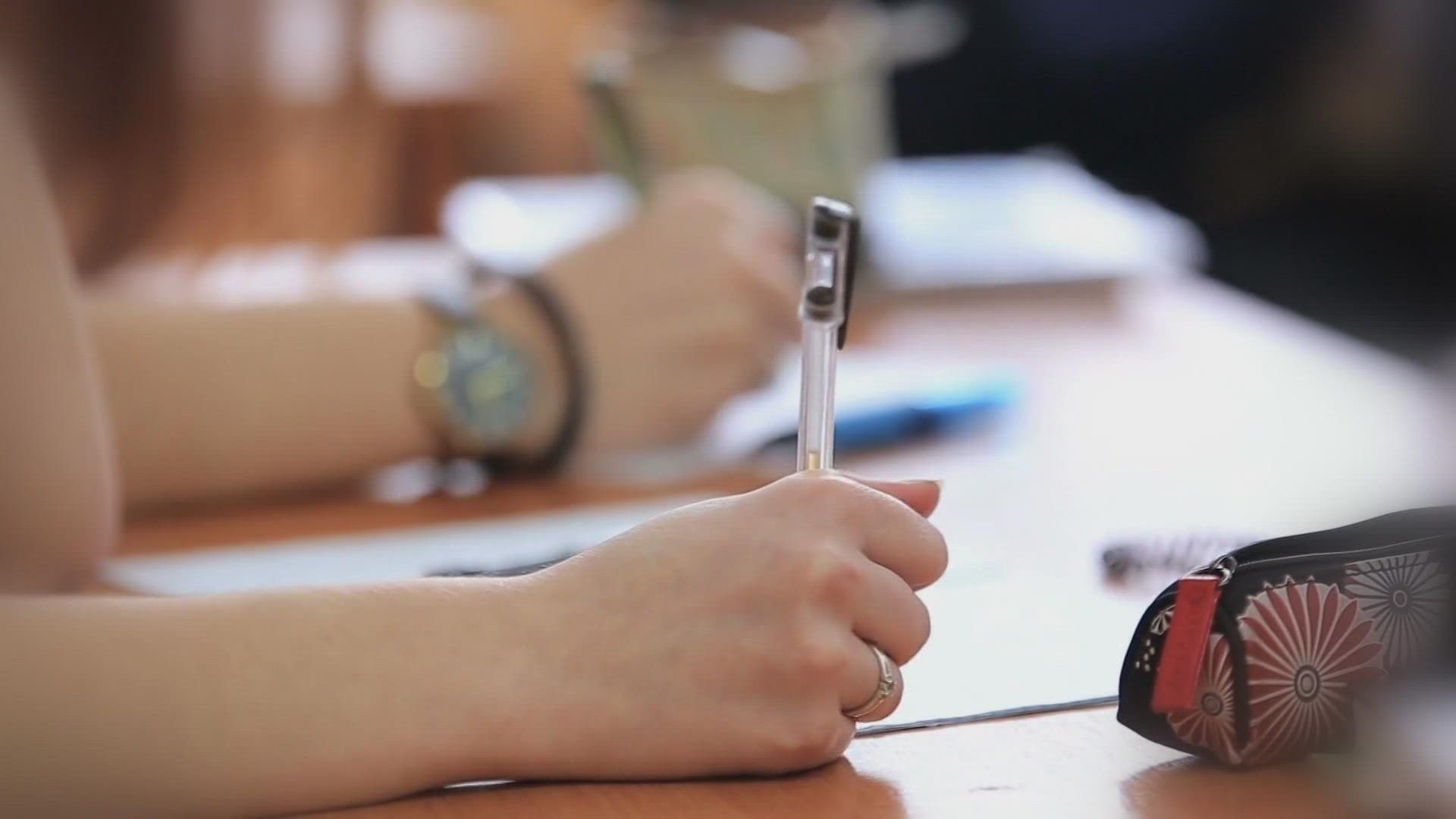PHOENIX — Democratic Arizona Gov. Katie Hobbs wants to undo a massive expansion of a school voucher program championed last year by her GOP predecessor and other Republicans that lets students apply to use public money for private-school tuition and other education costs.
In releasing its budget proposals Friday, the governor’s office said the expansion is siphoning money from underfunded public schools and would cost $1.5 billion dollars over the next decade. Hobbs staffers estimated the move would save the state $135 million next fiscal year.
The expansion, one of Republican Gov. Doug Ducey’s biggest accomplishments, extended the voucher program to every child in the state.
Hobbs isn’t proposing doing away with all vouchers, but wants to return the voucher program to what it was before the expansion — when disabled children, students living on American Indian reservations, students attending low-performing public schools and others were eligible for the voucher funds.
Hobbs’ proposal will face an uphill climb at the Republican-controlled Legislature, where backers of the voucher expansion say it allows parents to choose the best schools for their children.
“We think it’s important to produce what is a contrast to what could be possible if we made a true investment in public education,” said Hobbs chief of staff Allie Bones.
Republican state Sen. T.J. Shope, a school choice supporter, said families that receive voucher funds will not quietly accept an end to the expansion.
“The conversation is now going to be about whether the governor should take something away from parents at this point,” Shope said.
Arizona now has the nation’s most expansive private school voucher law. It allows parents of the more than 1.2 million school-age children to get 90% of the state money that would normally go to their local public school and use it for private or other school costs. That amounts to about $7,000 for a non-disabled student.
The voucher system started in 2011 with a small program that only applied to disabled children, who can receive up to $40,000 a year for specialized therapy. The Republican-controlled Legislature expanded it repeatedly over the past decade. Before the universal expansion took effect it also covered students living on American Indian reservations, attending low-performing public schools and several other groups.
Republican lawmakers on Thursday had suggested that the state pass a status quo budget mirroring the previous year’s spending and then have separate battles over new spending.
“This was a bipartisan budget that we passed just six months ago that people were excited about, and so I think it represents, I think, a good baseline,” Shope said.
Bones said Hobbs wants to work with leaders who want to find solutions, but didn’t seem open to a budget that continues the same spending as the previous year.
“A continuation budget is not working for the people of Arizona,” Bones said.
Budget officials at the Legislature released figures showing the state has a one-time $1.8 billion surplus. The Joint Legislative Budget Committee said 30,000 children are receiving vouchers at an unbudgeted cost of $200 million during the current budget year. While they said it's impossible to forecast future costs, their “best guess” was is that enrollment will be around 52,500 children at a cost of $376 million during the next budget year, which begins July 1.
Up to Speed
Catch up on the latest news and stories on the 12News YouTube channel. Subscribe today.

